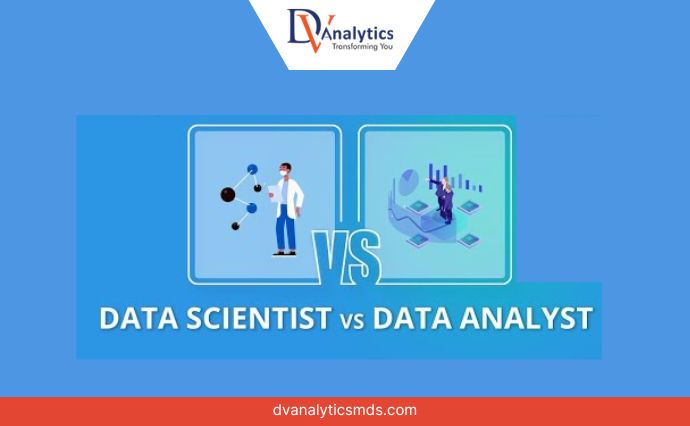
Data Analyst vs Data Scientist: Which career option to choose in 2024?
Choosing between a career as a data analyst and a data scientist depends on your interests, skills, and career goals. Here’s a comparison to help you decide:
Skills Required:
- Data Analyst: Strong skills in SQL, Excel, and data visualization tools like Tableau or Power BI. Proficiency in statistical analysis and understanding of databases.
- Data Scientist: Proficiency in programming languages like Python or R, knowledge of machine learning algorithms, data modeling, and statistical analysis. Strong understanding of mathematics and advanced analytical techniques.
Job Responsibilities:
- Data Analyst: Focuses on interpreting data, analyzing trends, and providing insights to support business decisions. Works with structured data and often deals with descriptive and diagnostic analysis.
- Data Scientist: Involves developing predictive models, implementing machine learning algorithms, and extracting actionable insights from complex datasets. Often responsible for both descriptive and prescriptive analysis.
Career Trajectory:
- Data Analyst: Typically starts with entry-level roles such as Data Analyst, Business Analyst, or Reporting Analyst. Can progress to senior analyst positions or move into specialized areas such as Business Intelligence (BI) or Data Engineering.
- Data Scientist: Can start as a Junior Data Scientist or Data Analyst with strong programming skills and progress to Senior Data Scientist, Machine Learning Engineer, or AI Specialist. Opportunities for specialization in areas like computer vision, natural language processing, or deep learning.
Demand and Salary:
- Data Analyst: High demand across various industries such as finance, healthcare, retail, and technology. Salaries vary based on location, experience, and industry but are generally competitive.
- Data Scientist: Continues to be in high demand, particularly in industries like technology, finance, healthcare, and e-commerce. Data scientists typically command higher salaries compared to data analysts due to the specialized skill set required.
Personal Preference:
- Consider what aspects of data analysis and data science interest you the most. If you enjoy working with structured data, creating reports, and visualizing trends, a career as a data analyst might be a good fit. If you’re passionate about leveraging machine learning to solve complex problems and enjoy working with unstructured data, pursuing a career as a data scientist could be more fulfilling.
Dv Analytics is the Best Data Science Training Institute in Bangalore. Ultimately, both data analyst and data scientist roles offer exciting career opportunities with the potential for growth and advancement. It’s essential to assess your skills, interests, and career goals to make an informed decision. Additionally, you might consider seeking advice from professionals in both fields and exploring relevant educational opportunities to further develop your skills.






















